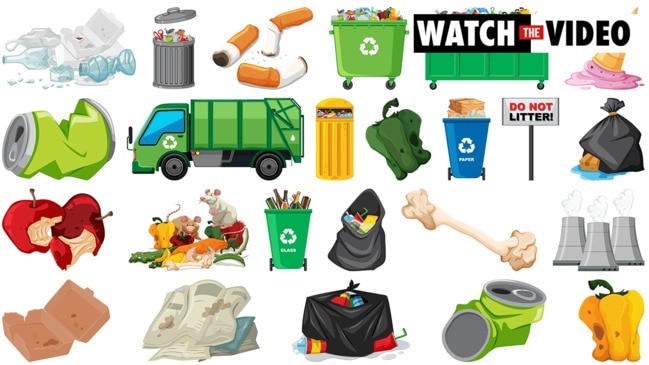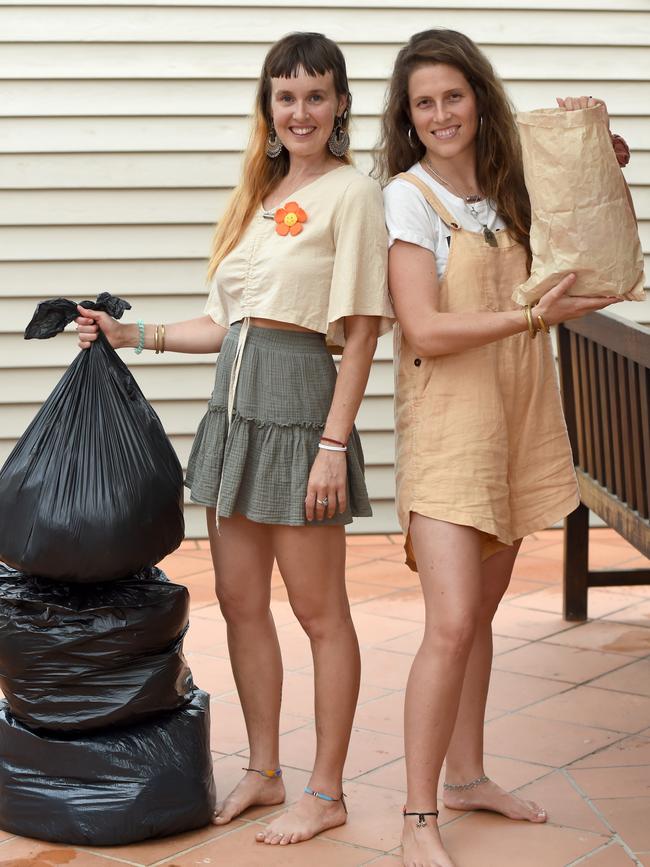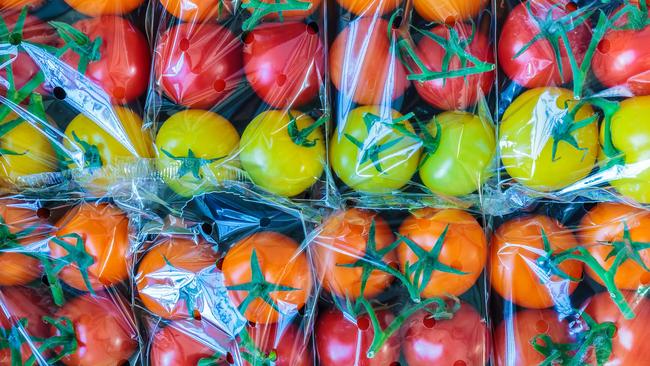How reducing household waste can save you money
Cutting down on waste could also help reduce household spending, proving what’s good for the planet can also be good for your wallet.

VIC News
Don't miss out on the headlines from VIC News. Followed categories will be added to My News.
Households can cut their waste in half and save money doing it with a few simple changes to habits.
Experts say the best way to dramatically reduce household waste is by making simple changes first and more dramatic ones over time.
Vicky Ellmore, who started the Reusable Nation website with her husband, says shifting to a less waste lifestyle has also saved them money.
“It’s not about being perfect. We can all do our bit and it all counts,” Ms Ellmore said.
They made gradual changes over time, starting with cutting back on food waste and ditching disposable coffee cups and straws, only shopping with reusable bags, then steering away from products in plastic packaging.
A typical family could expect to more than halve their total household waste by taking on board basic changes.
“A lot of it is about being mindful when you are buying, rather than going into automatic mode.
“We save a lot of money from buying second-hand and no longer buying single-use disposable things but using something reusable instead such as a cloth instead of paper towel or wet wipes, a beeswax wrap instead of cling film, a stainless steel razor instead of disposable razors.

“A good starting point is to try to work out where you are making most of your waste by doing a bin audit. Grab a few bins and buckets and put your waste in for the week in different categories such as food and recyclables before it goes into the rubbish bin.”
Waste educator Lindsay Miles said people should start small.
“Choose one, two or three things to try and change one step at a time so that you are not too overwhelmed. Once you have new habits sorted, you can start on the next thing.”
Here they share some top tips:
FIGHT FOOD WASTE
Ms Ellmore said food waste made up about 40 per cent of all household rubbish that ended up in landfill and was one of the easiest and most effective things to tackle.
“Plan your meals for the week and only buy the food that you need.
“And you don’t need to peel most vegetables, you can eat potatoes, carrots and beetroots, etc with the skin. We used to cut off the stem of broccoli but no longer do that, we put beetroot leaves in the oven with a bit of salt to crisp up like chips, we use the carrot top leaves to make pesto, and we make croutons or breadcrumbs from bread that has gone hard.”
Composting food scraps also made a big difference.
AVOID PLASTIC PACKAGING
Choose loose fruit and vegetables over packaged options but make sure you store produce properly, such as putting lettuce and herbs in a container with a lid.
“And just because a vegetable is wilted, doesn’t mean you need to throw it away. Wrinkly tomatoes can still make tomato sauce, bendy carrots can go in a stir fry, and wilted greens can go in soups,” Ms Miles said.
When possible, make a trip to a bulk store that sells dry goods such as flour, beans, oats, nuts and spices; cleaning liquids; shampoo and conditioner; and allows shoppers to bring their own refillable containers, jars and bottles.
Reusable Nation has a Where to Shop Waste Free in Australia map on its website.
Ms Miles suggested that when shopping at supermarkets, avoid brands with excessive packaging and multi packs of items such as snacks, juices and yoghurts. Instead, purchase larger sizes and portion into reusable containers and bottles.

BANISH BATHROOM WASTE
Start seeking out alternatives to plastic when levels start getting low, so you are prepared to replace it before it is finished.
For example, replace your deodorant in a spray can with deodorant paste, replace your plastic toothbrush with a more sustainable option such as bamboo or recycled plastic, and replace plastic razors with a steel razor and blades.
A solid soap bar, sold unpackaged or plastic-free, can be used instead of separate shower gel, face wash and body wash. Solid shampoo and moisturiser also reduces plastic waste.
CUT DOWN ON CLEANERS
Again, avoid buying products in plastic packaging, and buy what you can in bulk and place in your own containers, for example washing powder in a glass jar or a re-used box, and multipurpose cleaning solution in a re-usable spray bottle.
“We are down to one general multipurpose cleaner that we refill at one of the bulk stores, and a toilet cleaner,” Ms Ellmore said.
“You can also DIY and make your own cleaners out of white vinegar and orange and lemon peels that are fine for most surfaces and the oven.”
BUY SECOND HAND, BORROW OR REPAIR
“Don’t make the mistake of thinking second hand means old and worn out,” Ms Miles said. “You can buy clothes that still have the tags on them from charity shops and boutiques that specialise in preloved clothes, and get only slightly used furniture from sites like Gumtree and Facebook Marketplace.”
Rather than buying a new ladder, drill or other tools for one-time use, borrow from friends or rent them.
MORE NEWS
MELBOURNE AIRPORT ON TRACK FOR DIRECT TRAIN SERVICE
THE RISE AND FALL OF GEORGE CALOMBARIS
STENCH OF DOG URINE HAS ELWOOD BIKE SHOP SPINNING
There are also options to rent clothes and accessories, and to borrow toys from libraries.
“If something breaks, don’t automatically throw it away but think about whether you can buy a spare part or get it fixed.”
